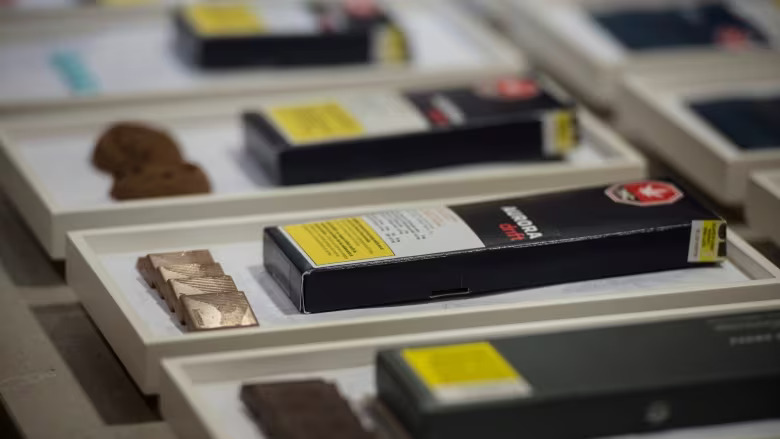From CBC News by Peter Zimonjic Sep 22, 2022
The review will look at impact on Indigenous people, youth and home cultivation
The federal government has launched a review of the Cannabis Act to determine whether the legislation governing the legalization of marijuana is meeting Canadians’ needs and expectations.
“Through this useful, inclusive and evidence-driven review, we will strengthen the act so that it meets the needs of all Canadians while continuing to displace the illicit market. I look forward to receiving the panel’s findings,” Health Minister Jean-Yves Duclos said.
The Liberals lifted a century-long prohibition on the use and sale of recreational cannabis in October 2018, with a commitment to review the law three years after it came into force. That review is nearly a year overdue.
According to the Cannabis Act, the review must focus on the law’s impact on Indigenous people, on cultivating cannabis in a housing complex and on the health and consumption patterns of young people.
“Young people are at increased risk of experiencing harms from cannabis such as mental health problems, including dependence and disorders related to anxiety and depression,” said Minister of Mental Health and Addictions Carolyn Bennett.
“While a lot of progress has been made on the implementation of the Cannabis Act and its dual objectives of protecting public health and maintaining public safety, we need to assess the work that has been done and learn how and where to adjust to meet these goals.”
The review mandate has been expanded to include an examination of the social and environmental effects of the Cannabis Act, the impact of legalization and regulation of medical cannabis and the impact on racialized communities and women.
Liberal MP Nathaniel Erskine-Smith, co-chair of the all-party cannabis caucus, said the need to get these additional areas included in the review explains in part why the government missed the three-year timeline.
“Getting the scope of the review right was much more important than the timeline,” he said. “If we’d followed the legislation to a ‘T’ — both in relation to the three-year timeline, but also the considerations that are set out in the legislation — we would have missed a major opportunity to get this right.”
Expert panel to be named soon
The federal government said the Cannabis Act was brought in to displace the illegal market and to protect the health of Canadians.
Progress toward both of those goals will also be examined by the review, which will be conducted by an independent panel of experts.
Morris Rosenberg, the former deputy minister of justice, will chair the expert panel. The other panel members have not yet been named.
Watch: Federal government launches review of Cannabis Act:
https://www.cbc.ca/player/play/1.6591729
Minister of Mental Health and Addictions Carolyn Bennett says the review will help government officials readjust the law to meet Canadians’ needs.
lt will hear from the public, government, Indigenous groups, youth, cannabis industry representatives and medical cannabis users. The panel will also hear from experts in public health, substance abuse, law enforcement and health care.
“I look forward to working with the panel and to providing evidence-based advice to ministers to strengthen this particularly important piece of legislation and advance public policy in this area in Canada,” Rosenberg said Thursday.
Children and edibles
Bennett and Duclos were asked about reports that an increasing number of children have been admitted to hospital because of exposure to cannabis products, and whether the review would look at the impact on young children.
“We’ve done well in terms of the public education campaign but I think since the advent of edibles that we need to do more,” Bennett said. “Families need to ensure that it’s in a safe place where children can’t access it.”
Erskine-Smith said there are always risks to public health when it comes to alcohol, cannabis and other substances but they can be mitigated with harm reduction.
“The public health approach has to be about reducing harms and taking a broader look … to say, ‘How can we best regulate activities to reduce harms?’ And edibles are good example of that,” he said.
Duclos said that since legalization, 70 per cent of Canada’s cannabis market has moved from the illegal economy to legal and regulated sources of supply.
Erskine-Smith said displacing the illicit marketplace for cannabis has to be a central goal of any cannabis legalization legislation and a core component of the federal government’s agenda overall.
“We are going to displace the illicit marketplace. It’s only a matter of time and you are going to, over the next three years, five years and 10 years, see those numbers shift,” he said. “The legal marketplace will be where Canadians continue to turn.”
He said that in order to ensure that happens, the federal government must continue to provide Canadians with a safe, affordable, reliable supply.
Peter Zimonjic is a senior writer for CBC News. He has worked as a reporter and columnist in London, England, for the Daily Mail, Sunday Times and Daily Telegraph and in Canada for Sun Media and the Ottawa Citizen. He is the author of Into The Darkness: An Account of 7/7, published by Random House.

















Comments are closed.